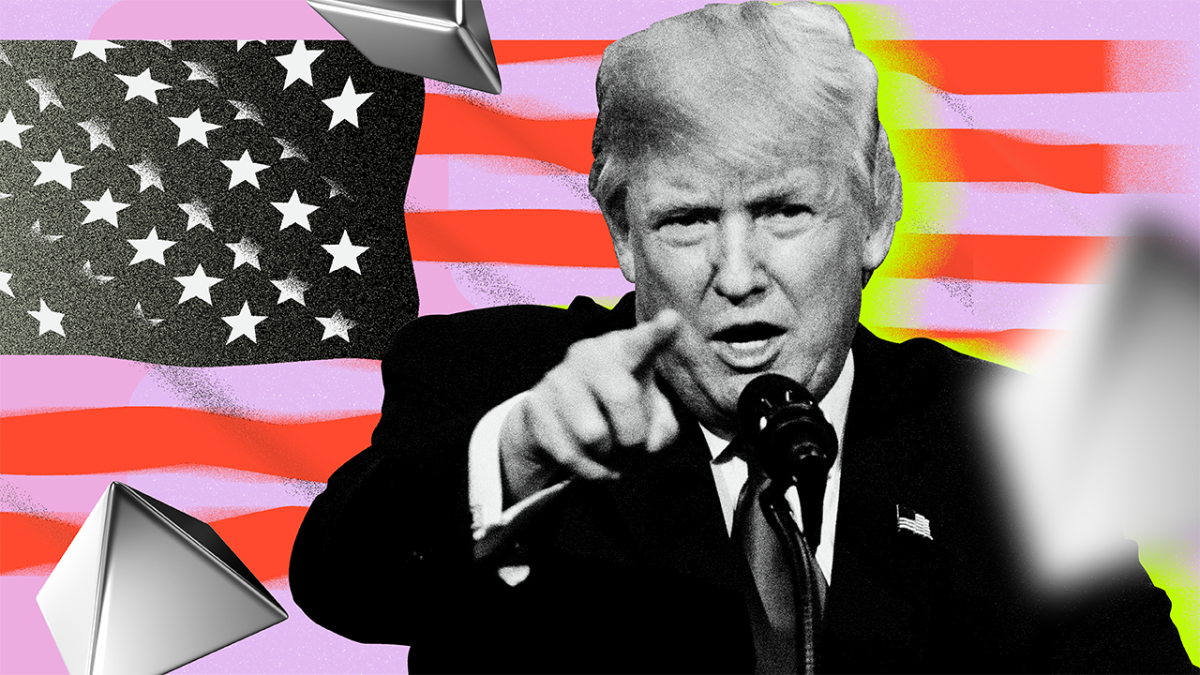Will USA Ever Consider Bitcoin as Legal Tender? Analyzing the Future of Cryptocurrency in the US
As cryptocurrencies, particularly Bitcoin, continue to rise in popularity, the question looms: “Will USA ever consider Bitcoin as legal tender?” This article cuts through speculation to assess the real prospects of Bitcoin within the American monetary framework, investigating its legal status, economic implications, and the Federal Reserve’s outlook.
Key Takeaways
- Bitcoin is not recognized as legal tender in the U.S., which maintains a strict legal definition of legal tender as U.S. coins and currency, despite the cryptocurrency’s increased acceptance on markets and various commerce platforms.
- While Bitcoin has made significant strides towards legitimacy, transitioning from association with the dark web to Wall Street investment, U.S. regulatory agencies hold diverse perspectives on its classification, complicating its full integration into the financial system.
- Internationally, attitudes toward Bitcoin as legal tender vary, with countries like El Salvador adopting it, and others like China banning it, exemplifying the diverse legal and economic environments influencing cryptocurrency adoption.
Understanding Legal Tender in the US Context

The concept of legal tender in the U.S. is akin to the foundation of a towering skyscraper—it’s what gives the edifice of the economy its stability and strength. Legal tender, by definition, is the currency that must be accepted if offered in payment of a debt. In the United States, this includes the familiar faces of U.S. coins and currency that make up the backbone of financial transactions.
But as we’ll see, the waters of what constitutes legal tender are stirred by the presence of digital currencies like Bitcoin.
The Role of the Federal Reserve
The Federal Reserve—guardian of the U.S. monetary system—views Bitcoin not as a rival currency but rather as a speculative asset, hinting at a cautious approach to the cryptocurrency craze. With a watchful eye on Bitcoin’s roller-coaster value, the Federal Reserve’s concerns about volatility prevent it from embracing Bitcoin as legal tender.
Moreover, without congressional legislation, the idea of a central bank digital currency remains a futuristic concept rather than an imminent reality.
Legal Tender Defined by Law
The legal framework of the U.S. paints a clear picture: legal tender is strictly defined as U.S. coins and currency, which includes notes from the Federal Reserve and national banks. Bitcoin, although legal for use in certain transactions, does not enjoy the same status and is categorized as a convertible virtual currency.
Should Bitcoin ever achieve the status of legal tender, it would bring a paradigm shift requiring businesses to accept bitcoin for obligations like taxes.
Bitcoin’s Journey Towards Legitimacy

From its inception in 2009, Bitcoin has embarked on a remarkable journey, shedding its initial cloak of mystery to emerge as a recognized commodity by financial authorities. The Commodity Futures Trading Commission’s recognition underscores Bitcoin’s evolving status within the regulatory framework, including the growing interest in bitcoin trading.
But to truly appreciate the strides Bitcoin has made, one must look at its path from the shadows of the dark web to the gleaming corridors of Wall Street.
From Dark Web to Wall Street
Once shrouded in the infamy of the dark web, Bitcoin’s association with illicit transactions caught the watchful eyes of regulators, sparking a crackdown on money laundering. This increased regulatory interest has, paradoxically, paved the way for Bitcoin’s gradual acceptance by mainstream financial institutions and savvy investors.
As a result, Bitcoin’s reputation has been laundered clean, integrating into services and portfolios as a legitimate, albeit volatile, asset.
Government Agencies Weigh In
The alphabet soup of U.S. government agencies offers a medley of viewpoints on Bitcoin. Here are some of the key perspectives:
- FinCEN sees it as a currency substitute, though not legal tender
- The CFTC places it in the commodity basket
- Bitcoin’s use in commerce hinges on sellers’ acceptance, as stated by FinCEN.
Meanwhile, the Internal Revenue Service demands its share of the pie, requiring capital gains tax on Bitcoin transactions. These diverse perspectives emphasize the complexity of integrating Bitcoin into the established financial order.
The Viability of Bitcoin as Legal Tender

The leap from cryptocurrency to legal tender is fraught with challenges for Bitcoin. Its decentralized nature stands at odds with the centralized frameworks that underpin traditional financial systems, making the issue of bitcoin legal status a complex one. As crypto assets continue to gain traction, the path to integrating them as legal tender remains uncertain.
Federal Reserve Chairman Jerome Powell’s assessment of Bitcoin as a speculative asset, akin to gold, reflects skepticism about its potential to serve as a stable currency.
Economic Stability Concerns
Bitcoin’s notorious price swings present a roller coaster ride that could potentially derail economic stability. The impact of such volatility extends beyond individual investments, potentially disrupting broader macroeconomic stability and financial markets. Financial institutions face a conundrum, as integrating Bitcoin into their operations could magnify risk management challenges.
Furthermore, governments ponder the implications of Bitcoin on fiscal stability, as the decentralized currency could complicate revenue collection and resource allocation.
Decentralized Finance vs. Central Banks
Decentralized finance and central banks represent two opposing ends of a spectrum. Bitcoin operates outside the purview of central banks, which undermines the traditional tools of monetary policy such as interest rate adjustments.
The decentralized nature of Bitcoin and its ilk introduces a new paradigm of financial services that bypasses the established order of central banks.
Global Precedents in Adopting Bitcoin

The adoption of Bitcoin as legal tender isn’t just a theoretical debate—it’s a global phenomenon with real-world examples. While Japan recognized Bitcoin as legal tender as early as 2016, Panama is crafting regulations to become a fintech hub. These examples demonstrate a spectrum of global responses to Bitcoin, ranging from full acceptance to outright bans, reflecting the diverse legal landscapes in which digital currencies operate.
El Salvador’s Adoption
El Salvador’s bold move to adopt Bitcoin as legal tender in 2021 marked a historic moment for the cryptocurrency. With the implementation of the Bitcoin Law, El Salvador not only welcomed Bitcoin into its economy but also incentivized its use with tax benefits, carving a path for other nations to consider.
Other Nations’ Stance
The global stance on Bitcoin is as varied as the countries themselves. While some, like the Central African Republic, see it as a path to economic prosperity, others like China have banned it entirely.
The European Union takes a more calculated approach with its MiCA regulation, aiming for a balanced integration of cryptocurrencies into the financial system.
The Future of Bitcoin and Digital Currencies in the US

The future of Bitcoin and its digital counterparts in the U.S. hinges on the established trust within the industry and the evolving regulatory landscape. As the market matures, well-regarded companies could expand their reach, while newcomers must navigate the scrutiny that comes with a maturing regulatory environment.
Innovations in Digital Currency
Central bank digital currencies (CBDCs) represent the next wave of financial innovation, with countries around the globe, including several G7 members, piloting their own digital versions of fiat currency as a response to the growing market of foreign currencies and the need for efficient foreign currency exchange.
The U.S., however, trails behind in the race to develop a retail CBDC, indicating a cautious approach to this new form of currency.
Crypto Enthusiasts and Legislative Trends
The trajectory of Bitcoin and digital currencies in the U.S. will be significantly influenced by crypto enthusiasts and evolving legislative trends. With countries like the U.S., Canada, and the U.K. allowing Bitcoin’s use, contrasting with others that deem it illegal, the landscape for digital currencies is ever-changing.
Potential Impacts on Businesses and Consumers
As the U.S. grapples with the prospect of Bitcoin as legal tender, businesses and consumers may experience profound effects. The implications range from shifts in business income and taxation to consumer adoption hurdles and technological barriers, creating a complex web of consequences.
Business Income and Tax Implications
For businesses, the categorization of Bitcoin as property by the IRS means navigating the implications of capital gains taxes on transactions, adding layers of complexity to the already intricate world of business income and taxation.
Consumer Adoption and Usage
While awareness of Bitcoin is on the rise, its use as a daily transaction medium remains limited. The challenges range from technological complexities to limited merchant acceptance, compounded by concerns over volatility and security.
Regulatory Framework Evolution
The U.S. regulatory framework for cryptocurrencies is in a state of flux, with enforcement agencies like the SEC and DOJ actively policing the sector. As the industry evolves, so does the global regulatory landscape, with initiatives like the EU’s MiCA regulation leading the charge.
Anti-Money Laundering Efforts
Anti-money laundering is a global priority, with cryptocurrencies in the spotlight. Regulatory bodies worldwide, including the U.S. Treasury, are enforcing stringent AML frameworks to mitigate financial integrity risks associated with digital currencies.
Security Tokens and Exchange Regulations
The SEC’s scrutiny of cryptocurrency exchanges for alleged securities dealings illustrates the evolving regulatory challenges facing digital currencies. With regulatory bodies grappling with appropriate classifications and oversight, the landscape for security tokens and exchanges continues to develop.
Summary
As we draw the curtain on our exploration of Bitcoin’s future in the U.S., it’s clear that the path to recognizing it as legal tender is strewn with both opportunities and obstacles. From the Federal Reserve’s cautious stance to the pioneering spirit of other nations, the cryptocurrency conversation is both multifaceted and dynamic. What remains certain is that the intersection of digital innovation and regulatory prudence will continue to shape the landscape for years to come.
Frequently Asked Questions
What is legal tender in the United States?
Legal tender in the United States includes U.S. coins, currency, Federal Reserve notes, and circulating notes of Federal Reserve Banks and National Banks. It must be accepted if offered in payment of a debt.
Does the Federal Reserve consider Bitcoin a currency?
No, the Federal Reserve Chairman has stated that Bitcoin is considered a ‘speculative asset’ rather than a currency due to its volatility.
Can Bitcoin be used legally in the United States?
Yes, Bitcoin can be used legally in the United States for transactions, although it is not considered legal tender. It is categorized as a convertible virtual currency.
Why might Bitcoin not be viable as legal tender?
Bitcoin might not be viable as legal tender due to its high volatility, decentralized nature, and concerns about economic stability. These factors raise questions about its suitability for widespread use as a form of currency.
How are Bitcoin transactions taxed in the United States?
Bitcoin transactions in the United States are taxed as capital gains, as the IRS classifies Bitcoin as property for tax purposes. Therefore, any gains made from Bitcoin transactions are subject to capital gains taxes and must be reported in U.S. dollars.

